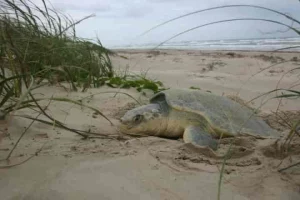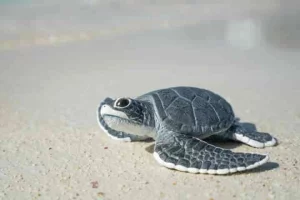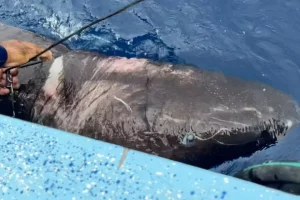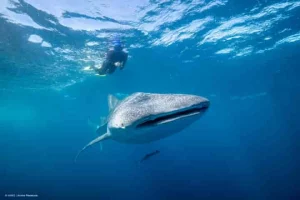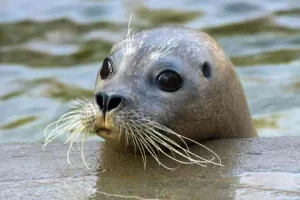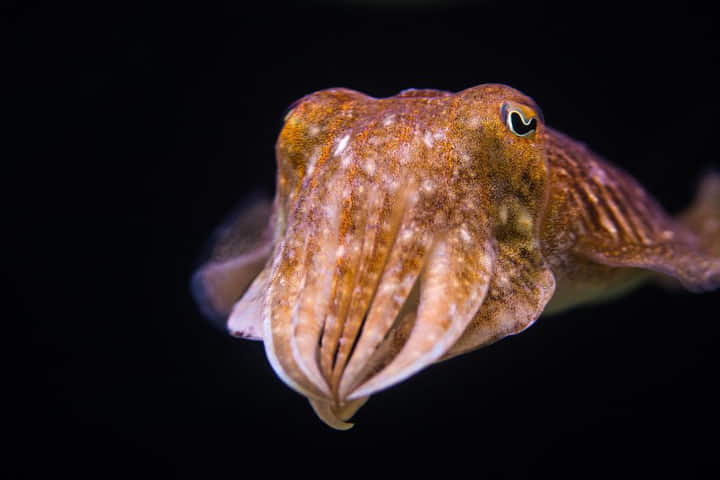
A recent study revealed that cuttlefish continue to have excellent memory till the end of their life
All of us have the mortal fear of ageing! It is not just because of the physical deterioration which one undergoes but more importantly the decline in mental agility especially of those who are on the cusp of the middle and old age.
Contrary to human beings, common cuttlefish continue to enjoy dependable and sharp memories about the food they ate recently. This continues right till the final stages of their life. All this was revealed by a new study that was published in Proceedings of the Royal Society B: Biological Sciences, this week according to an article in smithsonianmag.com.
This ability to recall is intact in these creatures even when they grow old and in fact the elderly ones are equal to the youngsters when it comes to memory. What is truly remarkable about this study and research is that for the very first time, evidence has been found about a living being which continues to enjoy excellent memories about specific happenings even while getting on in years!
Also read: Scientists discover that sharks had pre-dated Nikola Tesla’s one directional valve
The study author Alexandra Schnell, who is a behaviour ecologist at the University of Cambridge and the Marine Biological Laboratory, in Massachusetts, said in a press release: "Cuttlefish can remember what they ate, where and when, and use this to guide their feeding decisions in the future. What's surprising is that they don't lose this ability with age, despite showing other signs of aging like loss of muscle function and appetite.”
Not a fish!
Even with “fish” as part of their name, they do not belong to that species. They are a type of tentacled mollusk called a cephalopod, and related to octopuses and squids. There are 100 different species of cuttlefish and these soft-bodied beings rely on cuttlebone (a bone) to control their buoyancy. Devoid of an external armour for protection against predators, it uses its intelligence and ability to camouflage to protect itself.
As compared to their body weight, cuttlefish have large brains, and are the most intelligent invertebrates known so far to science. Besides the ability to solve puzzles and mazes, they are capable of self-control and delayed gratification, thus avoiding a food item which is less tasty in order to get instead an eatable which is delicious later on said Jennifer Ouellette for Ars Technica.
The capability to recall and relive past events, which is called as “episodic memory” among human beings is rare and it is found in primates and birds. With passage of time, as one gets older, both humans and other beings gradually lose this ability to form clear memories. What researchers were anxious to know was if the cuttlefish, with a lifespan of two years, too faces this decline in cognitive ability.
Also read: 890 million years old, Turner’s sponge fossil maybe the first sign of animal life on Earth
For this the team of researchers conducted a test in which two dozen young and old common cuttlefish were studied to compare their abilities. One half of the group were 10 to 12 months old while the remaining were 22 to 24 months old.
In the tank with the cuttlefish in them, specific areas were marked with different black and white symbols. And at each location scientists fed them either a tasty shrimp or a bland piece of prawn. Following weeks of foraging, the cuttlefish were able to identify when and where certain food rewards were available.
The scientists now mixed up the feeding patterns but both the old and young cuttlefish were able to recall which food appeared at which place. This memory they used to find their preferred food at the next feeding.
On this aspect Schnell observed: "The old cuttlefish were just as good as the younger ones in the memory task — in fact, many of the older ones did better in the test phase.”
Also read: Rodents too help their near & dear ones just like humans
There is a limit to the memory of cuttlefish as a few days before its death, there is a steep fall in their memory and learning function. According to David Neild of Science Alert, the cause of maintaining sharp memories late in life may be because of the absence of the hippocampus – which is associated with memory among humans and other vertebrates. In cuttlefish, it is the “frontal lobe” that retains learning and memory over time and this declines in the last two to three days of its life.
What is truly amazing is their ability to remember their mating habits in acute detail. The reason is that cuttlefish breed only at the end of their life. Recollecting who they mated with and the location, they attempt to mate with as many other cuttlefish as possible. This is to ensure the wide spread of their genes. “We think this ability might help cuttlefish in the wild to remember who they mated with, so they don’t go back to the same partner,” remarked Schnell.
The prime of cuttlefish lasts for quite some time and ceases only in the last few days with sexual activity being exchanged for infirmity. “They really go out with a bang,” remarked Schnell.







